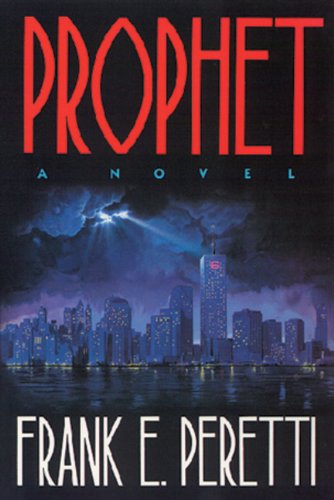
Frank Perettiâs fourth novel, Prophet, released in 1992. But its themes about Truth in our world are just as timely today.
Unlike its famous predecessors, Prophet has no visible angels or demons. But its spiritual battles are just as real.
John clicked off his computer, his way of clicking off the whole cussed day, the whole miserable mess, the whole circus that made him the clown. He just wanted to get out of there.
Leslie pulled up a chair and sank into it, looking very tired. Sheâd stuck around almost three hours longer than she had to, watching the entire outcome.
âWas that Max [on the phone]?â she asked.
âHoo boy, was it ever. Forget the dark alley â I wouldnât want to meet him in broad daylight right now.â
She nodded. âI would guess weâve exhausted our friendship with the Brewers. Weâve blown the whole wad.â She added a thought she wasnât too excited about. âI could probably call Deanne tomorrow and try to explain this to her.â Then she just sighed through her nose and shook her head despondently. âBut how good an explanation am I going to have? Right now I donât like the explanation myself.â She glanced across the newsroom. âI had it out with Marian and I talked to Rush too and . . . I knew what they were going to say.â
John supplied the answer. âIt was news. It was happening . . .â
Leslie prompted, âAnd . . .â
âAnd . . . everything in the story was true, factual.â
âAnd . . .â
âAnd they got reacts from both sides.â
Leslie threw up her hands, rested back in her chair, and said, âAnd I am quitting.â
John stopped short upon hearing that. He shouldnât have been surprised, but he was. âYou sure?â
She wanted to answer right away, but then hesitated. âIâm not sure about anything anymore. No, I take that back. I know one thing for sure: Iâve let down my friends, Iâve compromised my ideals, Iâve gone with the flow, but . . . at least I saved my precious little rear. Leslie Albright the reporter is safe.â She stopped to brood about that.
John suggested, âWell, really, did you have any choice?â
She leaned forward and spoke intensely. âYou better believe I did! Surprised? Well, it dawned on me today â no, actually Iâve known it all along, but itâs been so easy, so handy to forget â I have a choice. I can choose right from wrong â we all can. The problem is, itâs this beast, John. Weâre in the fishâs belly and itâs swimming away with us, remember? Once you get inside this workplace and you get so used to going with the flow and protecting your rear, you donât even think you have a choice, and you donât even consider choosing the right thing over the wrong thing, you just do what the machine tells you to do. Sure, you gripe about it in the news care or at the lunch table; you talk about the blind producers sitting in the windowless rooms forcing their reality on your, telling you what they want to see whether itâs really there or not â but you do it. Even for the dumbest reasons, you do it. I let Tina walk all over me because I was afraid for my job, and you let Ben Oliver crack the whip over you and make you do your tricks because youâre afraid for your job, and when it comes to keeping our jobs, our important, hard-to-get, major-market jobs, we have to be professionals, so right and wrong donât even enter the formula because we think we donât have a choice!â
John was getting uncomfortable with this. âLeslie, come on, youâre not being fair â not to the business, not to yourself. You . . . you canât bring morals into it when thereâs news to report ââ
She didnât raise her voice, but just whispered so hard she hissed. âJohn, donât we get to be people? Who are we anyway? I donât know who I am â or who Iâm supposed to be. I donât know who you are!â She stole a glance around the room, hoping no one was overhearing them. âJohn, what were we when we talked to the Brewers? Who was I, what was I when I spent all that time with Deanne? Was I just a news gathering machine or did I really care, did I really feel for Annie Brewer? What do you do, John? Hang up your humanity when you come into the newsroom? Does John Barrett ever feel anything?â She swallowed her emotion and ventured, âYou introâd a story that betrayed people who trusted us, and you did it so well! You were so . . . so professional!
âWell, I canât do that. John, the Brewers have been through the machine; theyâve had their two-minute spot on television and now theyâre gone; theyâll probably never come across that assignment desk again, but you know what, the Brewers, the real-live, breathing, feeling Brewers, are still out there, still living in that little house with one less daughter, and I canât just crumple them up, toss them, and go on to the next story.â
âLeslie . . .â John had to make sure she knew. âI felt something.â
Leslie was pained as she grappled with that. âThen . . . John, in Godâs name, why did we let this happen?â
John couldnât fight it anymore. His head, his professionalism, told him one thing, but his heart kept listening to Leslie and to what he knew deep inside. He had to give in. He leaned his elbows on his desk and rested his forehead in his hands. For a moment he said nothing, but then, as if confessing, he spoke in a weak, barely audible voice, forcing himself to say it. âTina Lewis called the Womenâs Medical Center right after you talked to her on Thursday. She told them all about the Request for Medical Records, and she told them about Annieâs code name, Judy Medford. She even spelled it for them. She told Alena Spurr that you and Deanne were going to be there the next morning, and Alena Spurr told Tina about Max Brewer being arrested and his jail time, the whole thing. Thatâs how Tina knew about it this afternoon.
âLast night Alena Spurr went through all the records and purged Judy Medfordâs name out. She even rewrote the daily schedule by hand so she could omit Annieâs code name.â
Leslie was speechless. Sure, itâs what sheâd thought, and yet . . . this sounded so direct, as if John really knew, as if heâd been there.
John continued in the same quiet voice, as if he were spilling his guts, confessing secrets heâd been hiding. âTina is a deeply wounded woman . . . Sheâs scared, and sheâs running, and when she fights and pushes like she does, itâs because sheâs trapped, sheâs trying to defend herself.â
Leslie leaned closer to hear him better, his voice was getting so quiet.
John stopped to gather strength and then continued. âThree years ago . . . September 16th . . . Tina had an abortion. It was a boy. The only child she ever had. The anniversary was just two weeks ago, and I heard her screaming.â
âScreaming?â Leslie whispered.
John held his hand up. âI heard her screaming . . . Screaming inside. Sheâs still thinking of him, and every time an abortion story comes along, it reminds her, and so she had to fight it off. She has to show herself, show the world, that what she did was all right, that she had the right to do it, that she isnât guilty of anything. Leslie . . . when you pitched the story idea to her, you came too close to the wounds.â
For the first time John looked at her. âItâs not you or me she hates. Sheâs not fighting against us. Itâs the Truth she hates. The Truth wonât let her alone, and she hates it.â He stopped as another thought came to his mind. âAnd . . . I donât know who they are, but . . . Annie isnât the only one. Some other girls have died there.â
Leslie believed him. âJohn . . . how do you know all this?â
He looked as if he would break into tears and shook his head. âI donât know.â
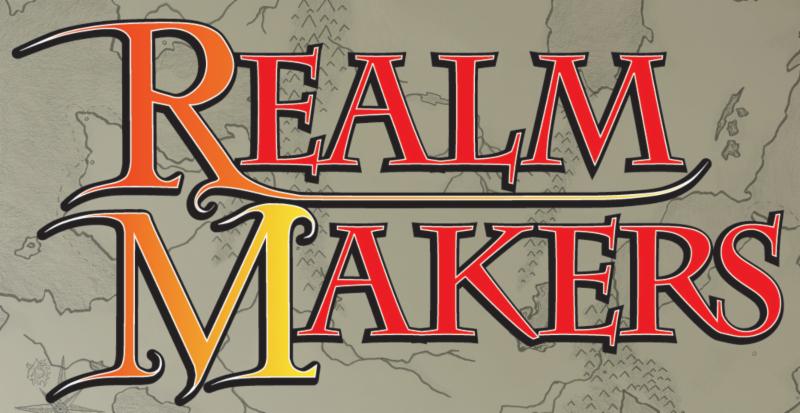




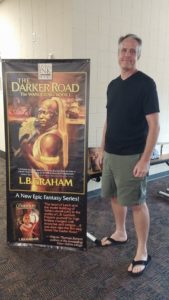








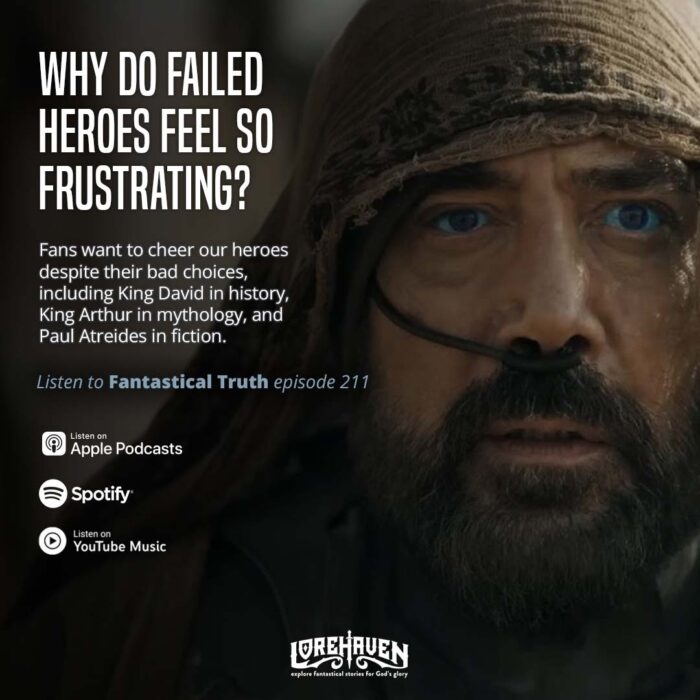






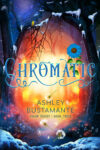


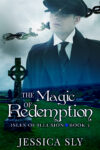
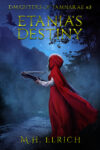
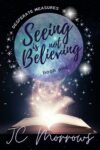
















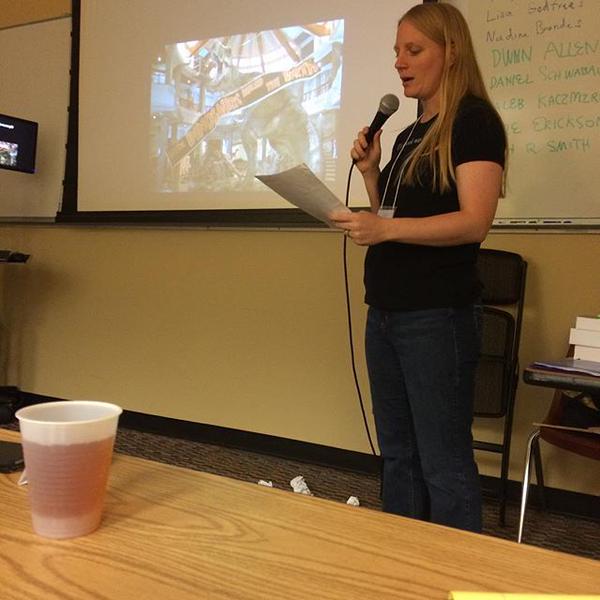



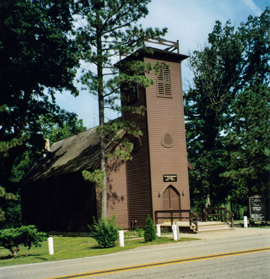
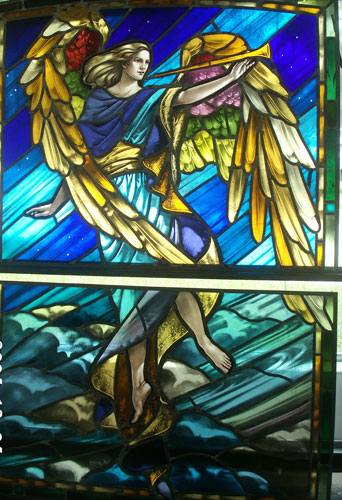
 beginning, and history are mysteries; we have no idea of what passes for “normal life” among angels, or what kind of relationships they enjoy with each other or with God. Of their work we have some idea, but none of their rest or their play – if they have anything we would recognize as rest or play, which we also don’t know.
beginning, and history are mysteries; we have no idea of what passes for “normal life” among angels, or what kind of relationships they enjoy with each other or with God. Of their work we have some idea, but none of their rest or their play – if they have anything we would recognize as rest or play, which we also don’t know.

 There’s been much in the news the last few days about a “beloved” lion which was shot and killed by a rich American big game hunter. I have a number of thoughts about this.
There’s been much in the news the last few days about a “beloved” lion which was shot and killed by a rich American big game hunter. I have a number of thoughts about this. First, as most people familiar with the Bible know, God gave Adam and Eve jurisdiction—the responsibility to rule the earth and all that is in it—before sin infected creation:
First, as most people familiar with the Bible know, God gave Adam and Eve jurisdiction—the responsibility to rule the earth and all that is in it—before sin infected creation: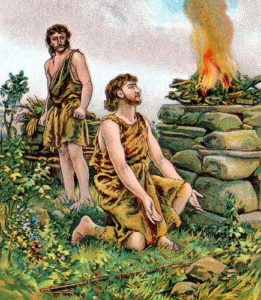 God ordained sacrifice, including animal sacrifice, after Adam sinned. In fact, God first killed animals in order to clothe Adam and Eve in their skins. As part of the Law, He gave specific rules about sacrifices, including which animals were to be offered and in what quantity. In addition, these clean animals were the ones the Jews were allowed to eat.
God ordained sacrifice, including animal sacrifice, after Adam sinned. In fact, God first killed animals in order to clothe Adam and Eve in their skins. As part of the Law, He gave specific rules about sacrifices, including which animals were to be offered and in what quantity. In addition, these clean animals were the ones the Jews were allowed to eat.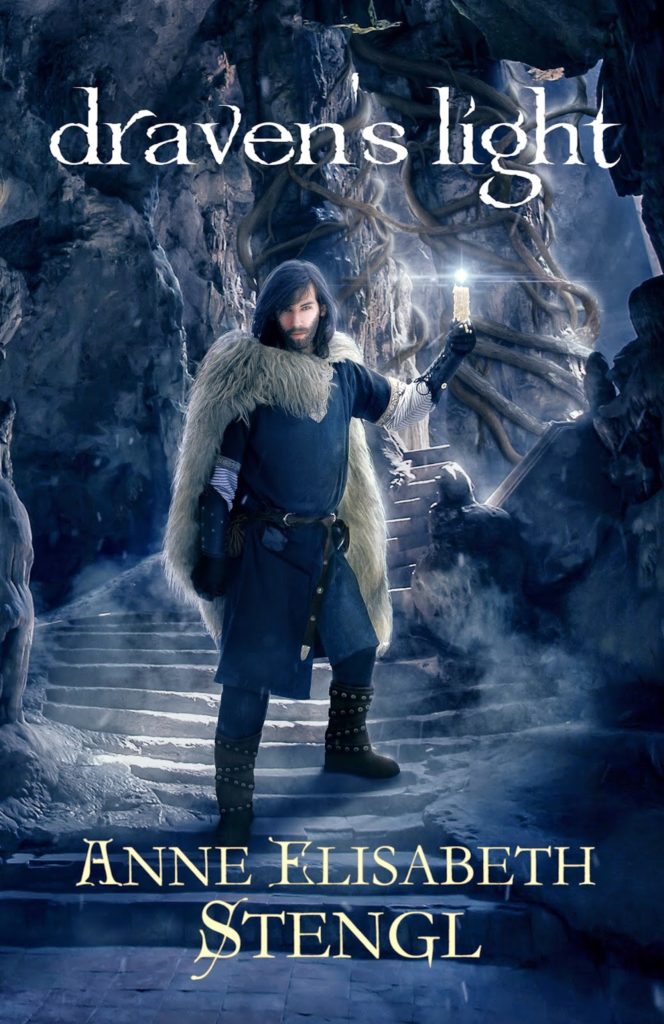
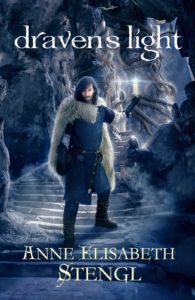
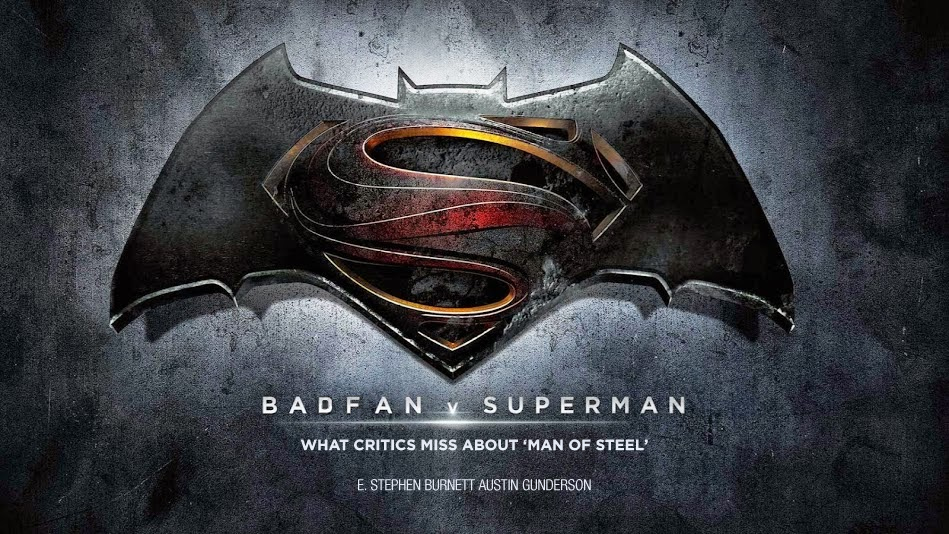

 Itâs for this reason, Stephen, that I share your excitement for Batman v Superman. I anticipated great things even before I saw the recent extended trailer, but now that we know for certain that the fallout from Supesâ battle with Zod will be a major plot point, Iâm ecstatic. A Superman who appears in court is a Superman prepared to confront the implications of âcollateral damage,â vigilante justice, and public ingratitude. More than that, a Batman willing to actually take action on the premise that âabsolute power corrupts absolutelyâ is a Batman who operates on principle, rather than the insipid pragmatism so common in superhero stories.
Itâs for this reason, Stephen, that I share your excitement for Batman v Superman. I anticipated great things even before I saw the recent extended trailer, but now that we know for certain that the fallout from Supesâ battle with Zod will be a major plot point, Iâm ecstatic. A Superman who appears in court is a Superman prepared to confront the implications of âcollateral damage,â vigilante justice, and public ingratitude. More than that, a Batman willing to actually take action on the premise that âabsolute power corrupts absolutelyâ is a Batman who operates on principle, rather than the insipid pragmatism so common in superhero stories. So the reason many people dismiss the Batman-Superman showdown is ultimately the same reason people complained about Man of Steel: they prefer heroes who inhabit a separate moral universe. Batman should trust Superman âbecause heâs Superman, dagnabbit!â If weâre forced to watch Batman develop that trust, then weâll have to grapple with whether we would trust Superman, too. Much easier for such dynamics to be offered up pre-cooked and pre-chewed â axiomatic assumptions that allow us to cut straight to consequence-free slugfests with villains we can all agree weâre supposed to hate. We want our heroes nonthreatening and our victories cheap.
So the reason many people dismiss the Batman-Superman showdown is ultimately the same reason people complained about Man of Steel: they prefer heroes who inhabit a separate moral universe. Batman should trust Superman âbecause heâs Superman, dagnabbit!â If weâre forced to watch Batman develop that trust, then weâll have to grapple with whether we would trust Superman, too. Much easier for such dynamics to be offered up pre-cooked and pre-chewed â axiomatic assumptions that allow us to cut straight to consequence-free slugfests with villains we can all agree weâre supposed to hate. We want our heroes nonthreatening and our victories cheap.

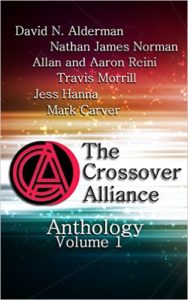
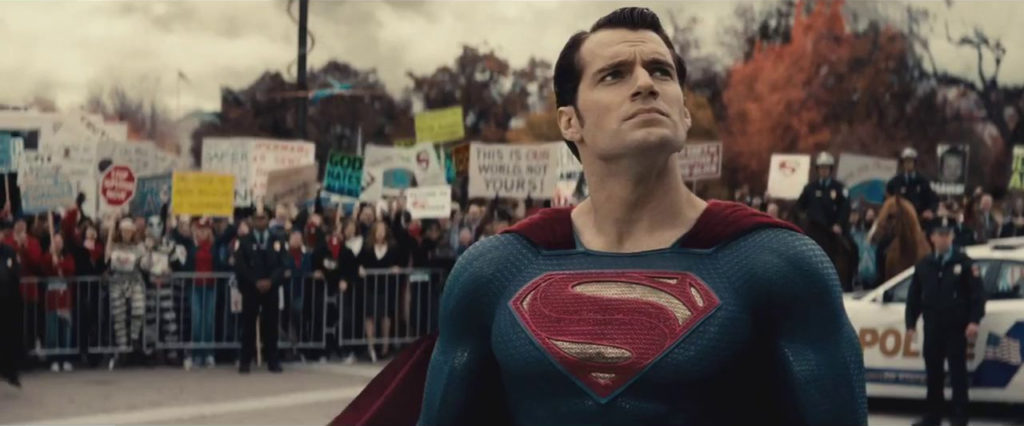

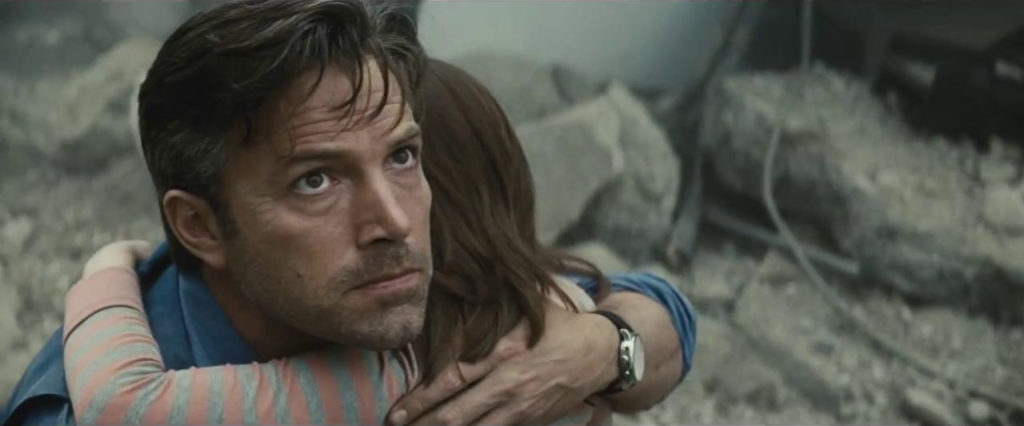
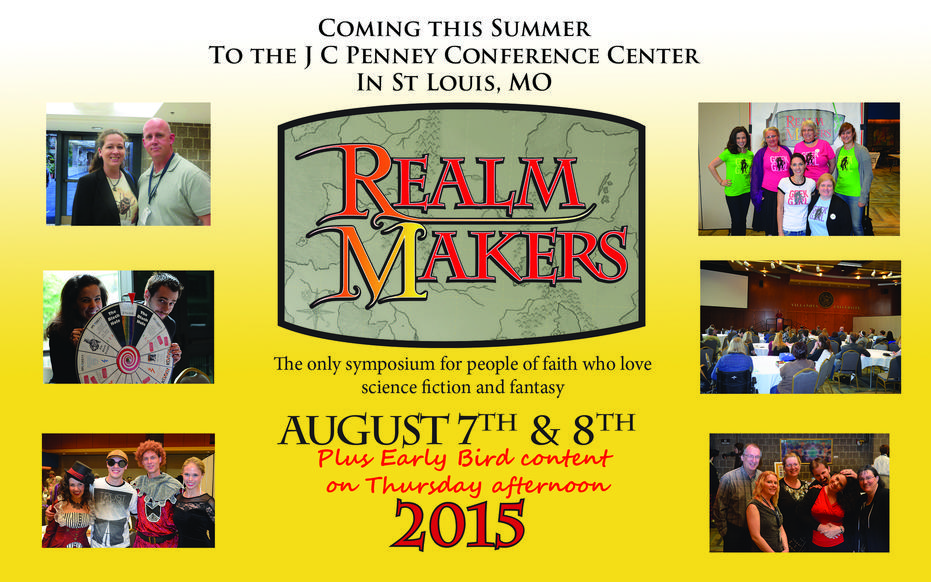
 If you haven’t heard of Realm Makers, where have you been?
If you haven’t heard of Realm Makers, where have you been? 



